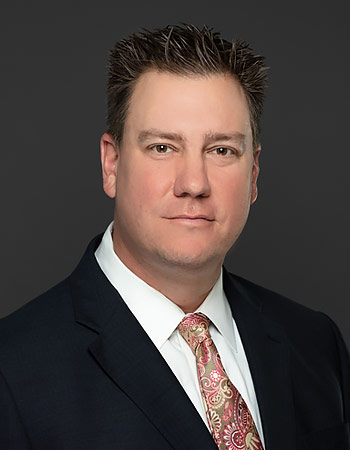In Texas, you can file a lawsuit for a nursing home-related death to seek justice when a loved one dies due to neglect or abuse in a care facility. This type of wrongful death claim arises when a nursing home fails to meet basic care standards, leading to fatal consequences such as medication errors, preventable falls, or severe malnutrition. A wrongful death lawsuit aims to secure compensation for damages like medical expenses, funeral costs, and the loss of companionship while also promoting higher care standards within nursing facilities.
No Fees Unless We Win!
In Texas, the next of kin, including children, parents, and spouses, are typically entitled to file a wrongful death claim against a nursing home. If these parties do not take legal action, the executor of the deceased person’s estate may do so. Our team of wrongful death attorneys in Dallas, TX, at Crowe Arnold & Majors, can help you navigate the legal process, gather necessary evidence, and effectively hold negligent nursing homes accountable for deaths.
Who Is Eligible To File A Nursing Home Wrongful Death Claim?
In Texas, as noted, when a nursing home resident dies due to neglect or abuse, the spouse, parents, and children, including legally adopted children, have the right to pursue a wrongful death claim against the facility. If no eligible family member takes legal action within three months of the resident’s passing, the executor or administrator of the deceased’s estate may file the claim instead.
Siblings are not eligible to file a wrongful death lawsuit in Texas. However, if the executor or administrator of the deceased’s estate files a wrongful death claim, any compensation awarded is distributed according to the deceased’s will or, if there is no will, under Texas intestacy laws. In such cases, financially dependent siblings might receive a portion of the compensation through the estate, depending on their status as heirs.
Filing separate lawsuits for the same wrongful death is not permitted under Texas law. Collaborating on a joint claim offers several advantages, including a streamlined legal process and a unified presentation of evidence.
Jury verdict after trial involving allegations of nursing home abuse and neglect, in which victim suffered sepsis and severe malnutrition and dehydration. (Oklahoma)
Settlement involving nursing home fall.
Settlement involving nursing home bed sore and infection death.





The Legal Process for Filing a Wrongful Lawsuit Against a Nursing Home
Filing a wrongful death lawsuit for a nursing home-related death is a civil matter, distinct from criminal cases; a civil lawsuit focuses on seeking compensation for surviving family members.
Filing a wrongful death lawsuit against a nursing home in Texas involves several critical steps to hold the facility accountable for negligence or abuse leading to a resident’s death. Here’s an overview of the process:
- Consult an Experienced Attorney: We are experienced in handling the convoluted legal system surrounding Texas nursing home litigation. We can help you traverse the obstacles people often encounter during the claims process so your family can get the compensation they deserve.
- Investigation and Evidence Collection: We will conduct a thorough investigation, collecting medical records, incident reports, witness statements, and other pertinent documents to establish the nursing home’s liability. This step is crucial for building a strong case.
- Filing the Lawsuit: Once sufficient evidence is gathered, your attorney will file a wrongful death lawsuit in the appropriate Texas court. The lawsuit must be filed within the state’s statute of limitations, typically two years from the date of death.
- Discovery Process: Both parties exchange information through depositions, interrogatories, and document requests. This phase allows each side to assess the other’s evidence and arguments.
- Settlement Negotiations or Trial: Many wrongful death cases are resolved through settlements before reaching trial. If a fair settlement cannot be reached, the case proceeds to trial, where a judge or jury will determine the outcome.
Throughout this process, our team will advocate on your behalf, aiming to secure compensation for damages such as medical expenses, funeral costs, and loss of companionship.
Get the Legal Support You Deserve. Reach Out Today.
Common Causes of Nursing Home Wrongful Death
Wrongful death cases in nursing homes often stem from preventable neglect and substandard care, which include the following:
- Medication Errors or Improper Administration. Mistakes in prescribing, dispensing, or administering medications can have fatal consequences for residents. This includes overdosing, ignoring adverse drug interactions, failing to administer necessary medications, or giving medication to the wrong resident.
- Bedsores (Pressure Ulcers) Due to Neglect. Bedsores, or pressure ulcers, develop when a resident is left in one position for too long without being repositioned. If left untreated, these sores can become infected, leading to sepsis, gangrene, and other life-threatening conditions.
- Falls Resulting from Inadequate Supervision. Many elderly nursing home residents are at high risk of falling, particularly if they suffer from mobility issues, balance disorders, or cognitive impairments. Falls can lead to broken hips, head trauma, and internal bleeding, with potentially fatal complications.
- Malnutrition or Dehydration. A lack of proper nutrition or hydration can significantly weaken a resident’s immune system and overall health, leading to organ failure, infections, and an increased risk of fatal complications.
Finally, some nursing home deaths result from intentional abuse, including hitting, pushing, or excessive restraint.
Types of Compensation in Nursing Home Wrongful Death Cases
In Texas nursing home wrongful death cases, families may pursue economic, non-economic, and punitive damages. Economic damages cover medical bills, funeral expenses, and lost financial support the deceased would have provided.
Non-economic damages compensate for pain and suffering, mental anguish, and the loss of companionship suffered by surviving family members. In cases of gross negligence or intentional misconduct, punitive damages may be awarded to penalize the nursing home and prevent future harm. However, Texas law imposes caps on non-economic and punitive damages, making legal guidance essential to securing fair compensation.
Evidence Needed to Prove Liability in a Texas Nursing Home Wrongful Death Case
To hold a nursing home accountable for the wrongful death of a loved one in Texas, strong evidence is required to establish negligence or misconduct. Below are key types of evidence that can support a claim:
- Medical Records – Document your family member’s condition, treatments, and any signs of neglect, such as untreated infections, malnutrition, or bedsores.
- Incident Reports – Nursing homes are required to document injuries and major health events; these reports can reveal negligence.
- Witness Testimony – Statements from staff, residents, and visitors can provide firsthand accounts of poor care, abuse, or unsanitary conditions.
- Surveillance Footage – If available, video recordings may show abuse, neglect, or staff failing to respond to emergencies.
- Expert Testimony – Medical professionals, forensic experts, or elder care specialists can testify on how the facility’s actions contributed to the resident’s death.
- Staffing and Training Records – Evidence of understaffing, lack of training, or past violations can help prove a pattern of neglect.
- Autopsy and Death Certificate – Medical examiners’ findings can confirm the cause of death and link it to nursing home negligence.
No Fees Unless We Win!
Hold Negligent Nursing Homes Accountable
If nursing home abuse goes on long enough, it can lead to death. Finding out that your loved one has died is the worst-case scenario, and you and your family will want justice.
A Dallas nursing home neglect lawyer from Crowe Arnold & Majors can handle every aspect of building a strong wrongful death case, giving you and your family the time and space needed to heal from this profound loss. Schedule a free consultation today.

John W. Arnold,
Partner, Trial and Appellate Attorney
With over 25 years of experience, John is a seasoned trial and appellate attorney known for delivering results.

David W. Crowe
Partner, Personal Injury
For more than 30 years, David has been a powerful advocate and fighting for individuals harmed by negligence and abuse.

D.G. Majors
Trial Attorney, Personal Injury and Product Liability
D.G. is a trial lawyer with a strong track record of results in personal injury, product liability, and commercial litigation.
Our Dallas Location
6550 Bank of America Plaza
901 Main St.
P: 214-231-0555
